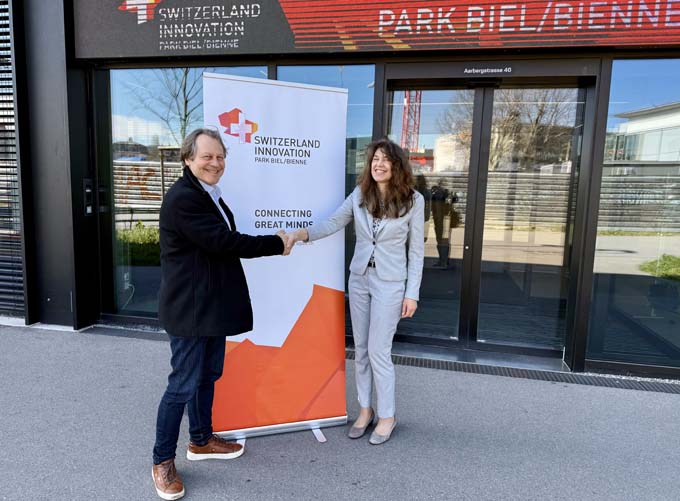How SMEs can move from being affected to being involved in norms and standards
Switzerland as a business location benefits greatly from norms and standards. They contribute to organizational development, high-quality products and international market access. However, a dialogue event organized by SQS with over 25 CEOs and other top managers from the Swiss economy also revealed that standards are increasingly being used in a protectionist manner: Norms and standards are increasingly being used (again) in a protectionist manner and are challenging small and medium-sized enterprises in particular.

The Swiss Association for Quality and Management Systems (SQS), which is celebrating its 40th anniversary this year, held a dialogue event with over 25 CEOs and other top managers from the Swiss economy on Tuesday, June 20 at The Dolder Grand in Zurich. At the event, two theses from the book "Wheels of Normality. How norms and standards create trust". SQS recently published the non-fiction book with the NZZ Libro publishing house. The two theses are: Norms and standards are (partly) decisive for prosperity in Switzerland; and it is precisely an open SME economy like Switzerland's that benefits from such private rules.
S-GE notes protectionist tendencies of norms and standards
In his introduction, SQS CEO Felix Müller showed how and why norms and standards make it easier for organizations to reliably meet high expectations - and thus contribute to our confidence in a normality characterized by quality, safety and comfort; a normality that is neither self-evident nor given and thus anything but "normal".
In her keynote speech, Dr. Simone Wyss Fedele, CEO of Switzerland Global Enterprise, emphasized the importance of norms and standards for the global networking of the Swiss economy. Local exporters benefit from clear and generally recognized rules. It is also important that companies can demonstrate that they comply with these rules by means of credible certificates such as those issued by SQS. However, Wyss Fedele also expressed her concern that important trading partners of Switzerland were increasingly using norms and standards for protectionist purposes.
"We would have neither the resources nor the know-how for such instruments"
In the following discussion, the companies had their say. Felix Müller was joined on the panel by Jürg Rogenmoser, part owner, member of the board of directors and operational managing director of Aeschbach Chocolatier AG; Dr. Peter Roth, standards representative of the Hilti Group and member of the board of the Swiss Standards Association (SNV); Christian Späth, head of the Civil Engineering Division and quality delegate on the executive board of Implenia AG; and Dr. Matthias Wandfluh, chairman of the board of directors and CEO of Wandfluh AG.
Two findings of the discussion were: Norms and standards are indeed important tools for companies to reduce complexity, avoid errors and guarantee quality. "It is precisely an SME like ours that benefits from this," said Matthias Wandfluh. "We would have neither the resources nor the know-how to develop such instruments ourselves." However, private standards in particular, which large companies impose on their suppliers, are becoming increasingly difficult for SMEs to meet in terms of number and scope. "More and more large customers are imposing their own requirements. Just filling out the corresponding questionnaires is almost impossible for us," said an entrepreneur from eastern Switzerland.
Participation is possible and urgent - especially for sustainability rules
This was a steep learning curve for Peter Roth, who is involved in the development of standards on behalf of the Hilti Group and the Swiss Standards Association (SNV). Unlike private standards, recognized standards, for example those of the International Organization for Standardization (ISO), are developed in a transparent, participatory and democratic process. As a result, they are more likely to serve the interests of the general public, not individuals. Roth urged those in attendance to take advantage of the opportunity to participate. "Of course, it's easier for a large corporation to provide the necessary resources. But ultimately it boils down to this: standardize, or you will be standardized!"
The concluding discussion with lawyer Dr. Elisabeth Bürgi Bonanomi, who heads the Sustainability Governance unit at the Centre for Development and Environment at the University of Bern, made it clear that it is more urgent than ever for business to play an active and constructive role in the development of new norms and standards. The state in Switzerland and abroad - especially in the European Union - has long since begun to enact numerous new rules in the name of a more sustainable economy.
Source and further information: SQS









